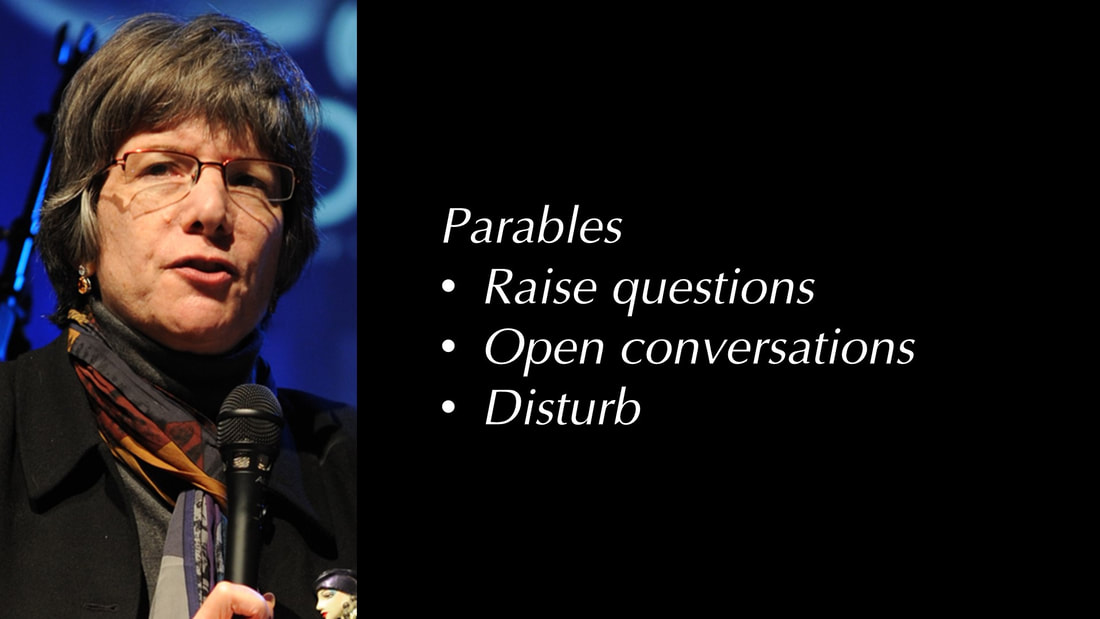Scott AndersonZephaniah 1:7, 12-18 † Psalm 90:1-12 † 1 Thessalonians 5:1-11 † Matthew 25:14-30 A video version of this sermon can be found here. The kingdom of God, the reign of God, the world in which God’s will is done is like this: a man going on a journey summoned his servants and entrusted his considerable riches to them. We’ve talked about this parable before. It is a sticky one—one of those that can be read in multiple ways depending on how you identify the players, depending on the way you read it. And there may be no right answer to it, except the one that gets us closer to the deep truth of God’s life in the world and in us in this moment in time, which is probably the one that disturbs and challenges us the most. I suspect we know the traditional reading. This is a story about the importance of doing something with the gifts and the talents we have been given. And this is true, isn’t it? It is important. The master to whom the talents belong is God, or maybe Jesus, and the servants are the disciples—us, you and me—who take what we’ve been given and use it for good, or don’t perhaps to our peril. Paul kind of sums up this idea in his letter to the Thessalonians: “Encourage one another and build up each other, as indeed you are doing.” Make investments in God’s ways, in other words, and be cautious when God’s ways challenge those ways to which we have grown accustomed. There’s much to be drawn from this, and some difficulties as well. How, for example, do we reconcile this callous or even cruel absentee owner for whom forgiveness seems to be a rare commodity, who seems to take delight in enriching those who are already rich and throwing the one who already had little into the darkness—how do we reconcile this image with the God who in Jesus is love and justice equally? How do we imagine that this one who gave his life for the sake of the world could be so hard-hearted? The other reading of the parable is more striking, at least to me. It imagines that the owner of the talents is not God at all, but representative of an economic and political system that refuses to give everyone a fair shake—the kind of world, for example, in which claims of equal representation and the belief that success is directly related to how hard you try—and only that—a bootstrap theology when most people have no boots. In this alternate reading the master isn’t God, but the one percent, the powerful mogul or politician or oligarch, the one with all the chips playing the system, using an economy that is stacked against the lesser players to double an already vast and unseemly wealth. You’ve got, in essence a mobster and his made men, or maybe just all-too-familiar politicians using whatever means available to take what they can. What if the third servant is actually speaking truth: I knew you were a harsh man, reaping where you do not sow and gathering where you did not gather seed”? And the master is just shameless? “What if I am? Then you should have gone and at least invested the money, given it to the bankers, got me some interest,” which is, of course, forbidden by the ancient Jewish law that all of the hearers of this parable would have known. Exodus: “you shall not take interest from each other, especially the poor.”[i] Leviticus: You shall not lend your money at interest or provide food at a profit.”[ii] Nehemiah: “Let us stop taking interest and stealing from people their fields, their vineyards, their livelihood.”[iii] In essence, Matthew’s audience would be standing there, chins on the ground: “Can you believe he just said that, right out loud!? He’s not even hiding his treachery anymore! He seems to think he’s untouchable now, that he can do whatever he wants without consequence. He just wants more and doesn’t care who knows it.”[iv] They were around then as they are now, of course, those willing to put a profit before people. And if that’s the case, then who is that third slave who buries that single talent? An alternate reading says it’s Jesus. It’s Jesus who refuses to perpetuate a system that eats its young. It’s Jesus and everyone like him resisting the game that is destined to destroy us. It’s Jesus taking a stand, turning the tables, speaking up and even putting his own body on the line on behalf of those who have no massive inheritance to either invest or bury because they’ve been denied their due for generation upon generation. It’s Jesus siding with those who muster a daring that someone like me will never fully understand to take a breath above a sea of abuse and insult and heartbreak in order to say clearly and courageously #MeToo or #BlackLivesMatter. It’s Jesus forcing a new way that serves all the people rather than just a few, to speak out against the oppression of children, women, and minorities, to engage the world with civility and generosity, because that’s what true religion does, because that’s where God is—in the justice, in the saving, in the restoration of life to the full for all God’s creatures. The alternate reading says it’s Jesus or it’s you and me, living as disciples in a world that needs mending, that needs courageous ones to work together in solidarity and with imagination and with hope for a future we know is possible because we can imagine it. The alternate reading says that, if anything, you should have buried your fear and invested what you have in creating a new and more just world. If you want to be inspired, I recommend that you take an hour or so this week and read the story of a group of tenants who started working together to purchase from their slum-lord the property in which they lived. Among the creative actions they employed was to hold back their rent payments which was their right under the CARES act, and to pool it with their neighbors to create a tenant owned co-op that has reshaped their future and built a resilient, caring community along the way.[v] You see, Jesus spoke in parables, not allegories, and we should probably learn the difference. In an allegory the proper interpretation requires an answer key or a decoder ring. In an allegory every detail symbolizes some group or spiritual principle. Parables, especially those Jesus told, defy a “one size fits all” reading. They are different from allegories in that there is no one right reading. Instead, they are meant to evoke and unsettle. Parables raise more questions than they answer. Parables disturb us out of our complacency and settled assumptions. If the interpretation is a platitude or a banality, says Amy Jill Levine—God loves you, be generous, pray more—we’ve probably done a pretty good surface reading, but we haven’t really appreciated the genius of Jesus’ storytelling, or the respect he had for those who listened to him. If the interpretation does not raise for us more questions, if it does not open us up to more conversation, if it creates a neat and tidy picture, we need to go back and read it again. [vi]
The parable should disturb. If we hear it and are not disturbed, there is something seriously amiss with our moral compass. It would be better if we perhaps started by seeing the parable not as about heaven or hell or final judgment, but about kings, politics, violence, and the absence of justice. If we do, we might be getting closer to Jesus.[vii] So what is the word for you, for us today who wish to draw closer to Jesus? I suppose one of the great gifts of this astonishing word is that the Spirit may just have something a little different for each of us. Perhaps you’ve been burying your talents and investing in fear, and it no longer seems useful to do so. If I’m always afraid then you always become someone to fear. So what will you do now? Perhaps you would like to rewrite the story for these servants, and maybe even for those ten bridesmaids. What if they would have pooled their resources rather than keeping them separate. Isn’t it true we can accomplish more with what we have together than with unequal resources apart? What’s your next step then? What practically are you going to do? Who are you going to talk to? The work is ongoing. It’s happening everywhere in God’s economy. How, now, will you and will I and will we enter into the joy of our master? Amen. Notes: [i] Exodus 22:25. [ii] Leviticus :25:36-37. [iii] Nehemiah 5:10-11. [iv] See Libby Howe. “The joy of what kind of master? (Matthew 25:14-30; 33A)” Christian Century, November 13, 2020. Retrieved on November 13, 2020 from: https://www.christiancentury.org/blog-post/sundays-coming/joy-what-kind-master-matthew-25-14-30-33a. [v] “The Tenants Who Evicted Their Landlord” The New York Times Magazine, October 13, 2020. Retrieved on November 13, 2020 from: https://www.nytimes.com/2020/10/13/magazine/rental-housing-crisis-minneapolis.html. [vi] Levine, Amy-Jill. Short Stories by Jesus. HarperOne. Kindle Edition (Location 4985). [vii] Levine, Amy-Jill. Short Stories by Jesus. HarperOne. Kindle Edition (Location 5022).
0 Comments
Leave a Reply. |
St. Andrew SermonsCategories
All
|


 RSS Feed
RSS Feed